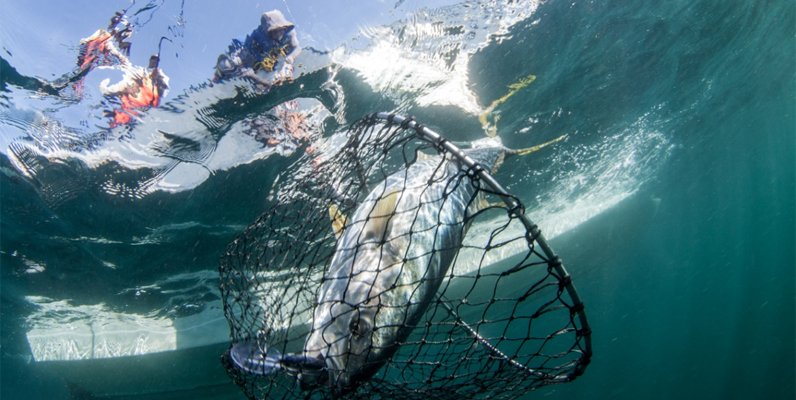Fish 2.0, the sustainable seafood business competition, is seeking judges and advisors to help identify the standout ventures that will present their business plans to investors and industry leaders at the final event at Stanford University in November.
Judges and advisors, who must have five or more years of business or investment experience, get an early look at innovative companies in the seafood sector, and earn a ticket to the invitation-only final event. Online judging requires a two-hour commitment between June 23 and July 4. Get more information and register here.
 This year’s contest attracted 170 entrants, twice the number in the contest’s first cycle in 2013, from across the range of business opportunities in sustainable seafood. Some of this year’s contestants are shortening supply chains for sustainable seafood products in the Pacific Islands, Alaska, Japan and Thailand. Others are using advanced aquaculture techniques to reduce energy costs, wastes, and disease, or are developing new fish feeds.
This year’s contest attracted 170 entrants, twice the number in the contest’s first cycle in 2013, from across the range of business opportunities in sustainable seafood. Some of this year’s contestants are shortening supply chains for sustainable seafood products in the Pacific Islands, Alaska, Japan and Thailand. Others are using advanced aquaculture techniques to reduce energy costs, wastes, and disease, or are developing new fish feeds.
Still others are improving seafood storage systems to reduce logistics costs, improve quality and open new markets; bringing convenient sustainable seafood products to consumers; developing systems that make supply chains traceable; or providing healthy foods and income to communities that have few other options.
This year’s Fish 2.0 applicants also reflect increasing global interest in sustainable seafood. About half of the entrants are based overseas, up from 30 percent in the previous cycle. About one-third of the total are from Asia and the Pacific Islands, with the rest from Latin America and the Caribbean, Europe and the Middle East, and Africa.
The surge of entrepreneurial activity is good news for the oceans and communities that depend on the $390 billion global seafood industry. About 70 percent of the world’s fisheries are fully exploited, overexploited or have already collapsed. Demand for seafood is expected to double by 2050, creating an urgent need for sustainably managed fisheries and environmentally responsible aquaculture.











